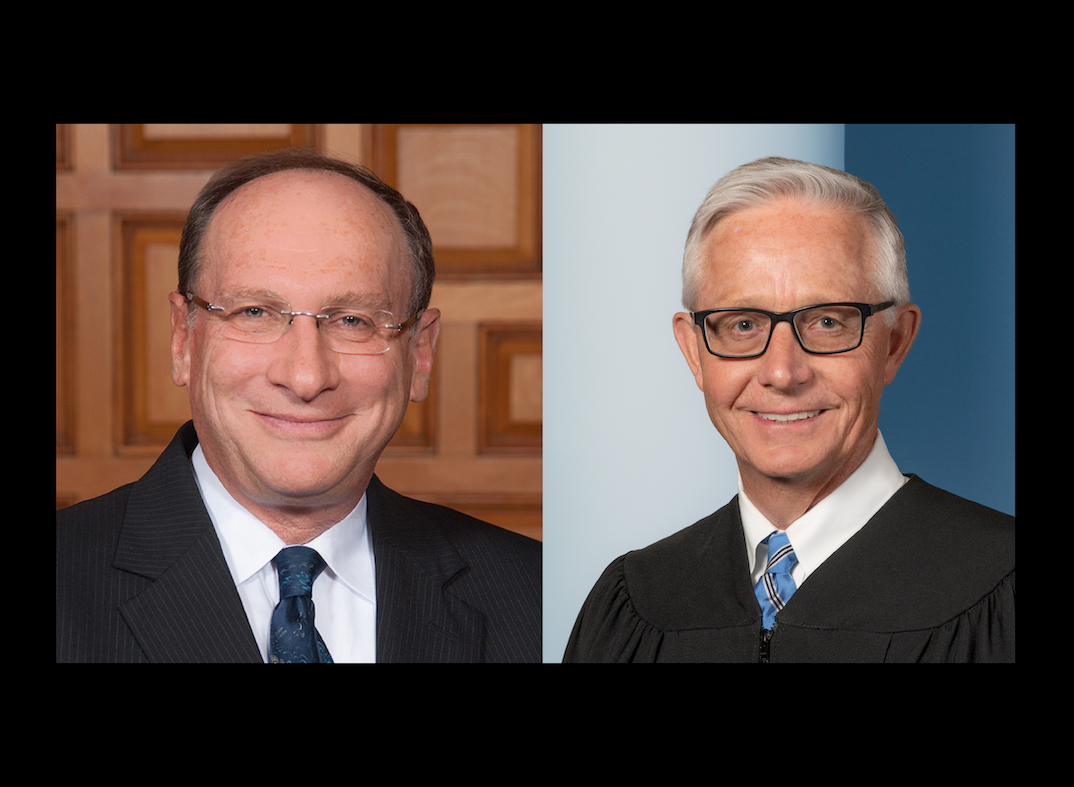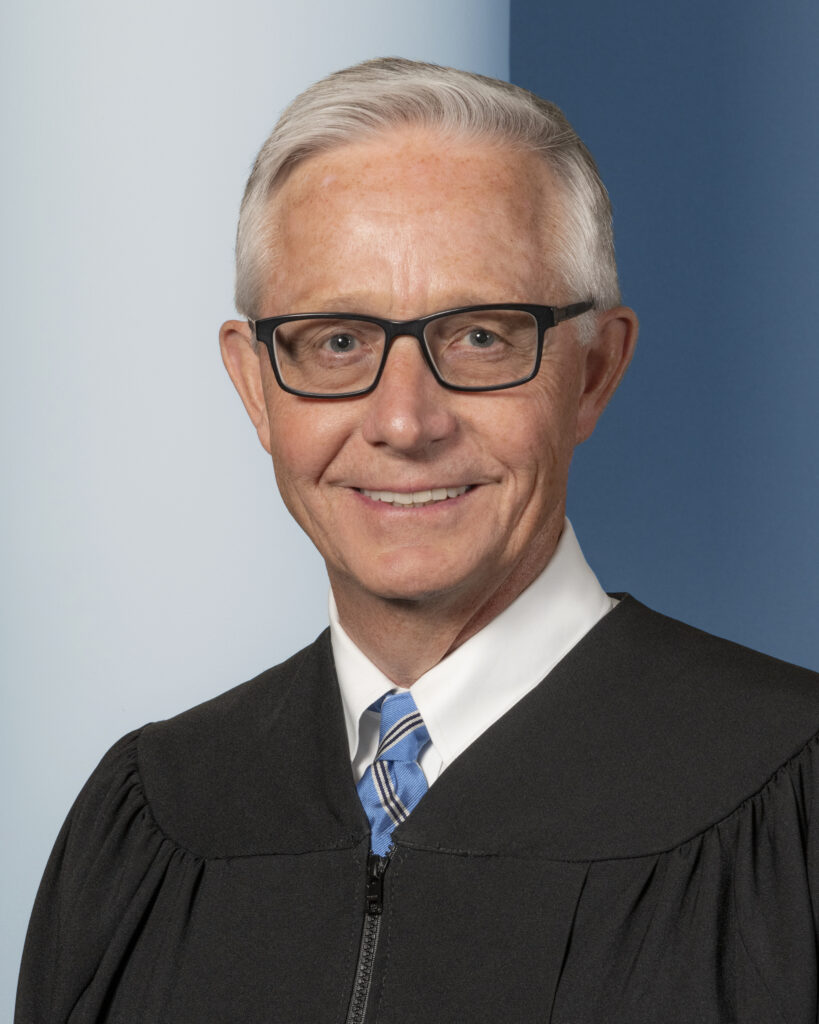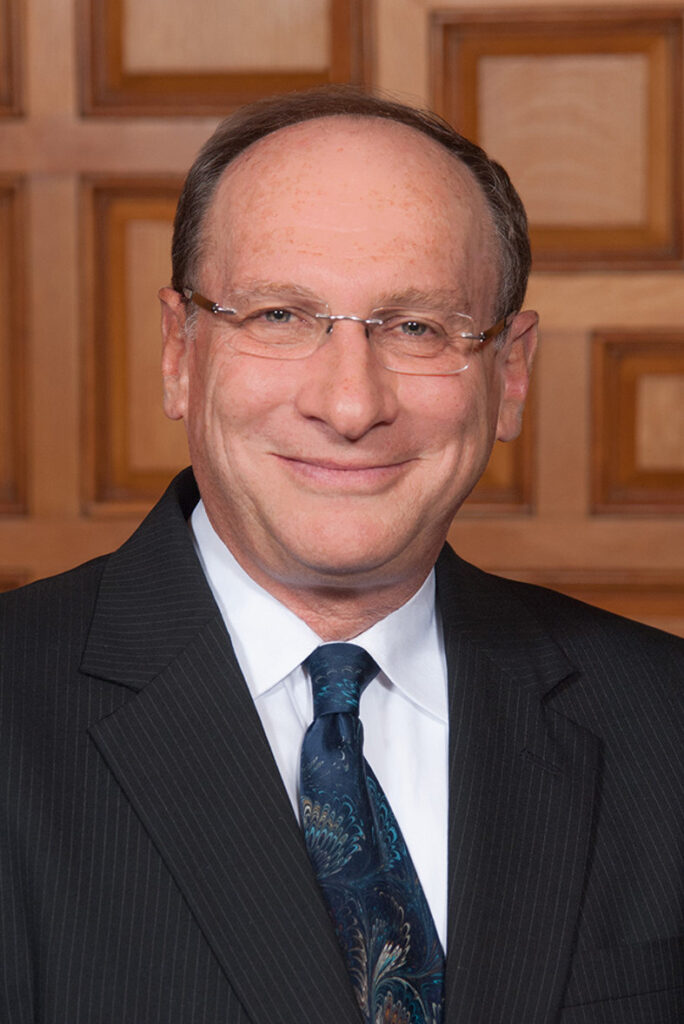
Fairness champions who left us too soon

The parallels between Mark Cady and Ralph Gants are striking.
Both were state supreme court chief justices – Cady in Iowa, Gants in Massachusetts. They were friends through their membership in the Conference of Chief Justices.
Both had become known nationally for their work to address racial disparities in the justice system.
Both were involved in high-profile events related to those efforts.
And both died unexpectedly a short time after those events.
Chief Cady was walking his dog in Des Moines when he suffered a heart attack and died on Nov. 15, 2019. He was 66.
Chief Gants passed away almost exactly 11 months later, on September 14, 2020, a few days after undergoing surgery for a heart attack. He was 65.

Ralph Gants
Gants often spoke out in favor of both civil and criminal justice reform.
As co-chair of the Massachusetts Access to Justice Commission, he sought to increase legal aid and other types of assistance for those who cannot afford counsel in civil matters such as housing, family law and consumer debt cases.
He also worked with the Massachusetts governor and legislature to support criminal justice reform bills in 2018 that changed how bail and fines were levied and eliminated or narrowed mandatory minimum sentences for some drug offenses, among other changes. Years earlier, he had warned that if mandatory minimum sentences for drug offenses continued, disparate treatment of persons of color would also continue.
He was perhaps better known, however, for a request he made.
In 2016 he asked Harvard Law School to conduct a study of racial disparities in incarceration rates in Massachusetts. The resulting report concluded that Black and Latinx people were overrepresented in the criminal caseload compared to their population in the state, and that Black and Latinx people were given longer sentences than their similarly situated White counterparts.
In his statement the day the report was issued, Gants predicted that the analysis would “provide us with important guidance as we work to eliminate racial and ethnic disparities in the Massachusetts criminal justice system.” He never got the chance to use that guidance because he died five days later. But his court colleagues are still carrying on that work today.
Chief Cady may have been best known for writing the Iowa Supreme Court’s opinion in its unanimous 2009 decision that made Iowa the third state to permit same-sex marriages.
But his fatal dog walk came exactly one month after a memorable address to the Iowa Summit on Justice and Disparities, which was organized by the Iowa-Nebraska Conference of the NAACP.
In his talk, he focused on the need to confront implicit bias, which he said was “always at the heart of racial disparities.”
He acknowledged that implicit bias can be difficult to talk about because it can sound like accusing someone of prejudice.
“The truth is just the opposite.” he said. “We must remember that when we talk about implicit bias, we are talking about how our brains work, unconsciously. And how it stores up our past, and how it can be often used instinctively to make negative associations about individuals that are not truth….
“[T]he implicit bias that we all have is not racism. It is not bigotry. It is instinctive, unconscious thinking, and can even involve thinking that runs counter to our stated values. But it can result in unintended bias.”
He talked about how encouraged he was by the success of a juvenile-offender diversion program in Davenport, Iowa, that provided rehabilitative services. The program was designed to keep youth – especially Black youth – from entering the criminal justice system.
“When juvenile offenders find their way into a criminal justice system,” he said, “too many never get out. Too many are often then hindered by a criminal record and end up having fewer opportunities in life. A life that then contributes to further disparities.”
Chief justices Cady and Gants shared many similarities, especially at the end of their lives. What made them two of a kind as judicial heroes was their determination to expose and correct unjust disparities and ensure fairness for all.
Leaving a legacy
“Chief Justice Gants’ efforts to eliminate racial and ethnic disparities in the legal system were driven by his deeply felt recognition of the common humanity that links us all. As he said in one of his speeches, ‘We are all interconnected, we are all part of the same team, and the successes or failures of one affect us all.’”
Massachusetts Chief Justice Kimberly Budd (Chief Gants’ successor)
“Under Chief Justice Cady’s leadership, the judicial branch dedicated itself to implementing initiatives designed to identify and eliminate discriminatory behaviors which may compound the disparities present in our system of justice as a whole. We are now building on his efforts by engaging all employees within the judicial branch with the goal of mitigating implicit bias in the areas of race, gender, and other identified protected classes. The judicial branch remains steadfast in its commitment.”
Iowa Chief Justice Susan Christensen (Chief Cady’s successor)

CHICAGO – The American Bar Association Judicial Division announced recently that TheNational Ju...

The National Judicial College is mourning the loss of former faculty member Judge Duane Harves, who passed ...

As the world manages an evolving natural environment, The National Judicial College announced today that it...

Do’s Manage your cases systematically Devise a system that works for you and your organizational...

After 22 years of teaching judges, Tennessee Senior Judge Don Ash will retire as a regular faculty member a...